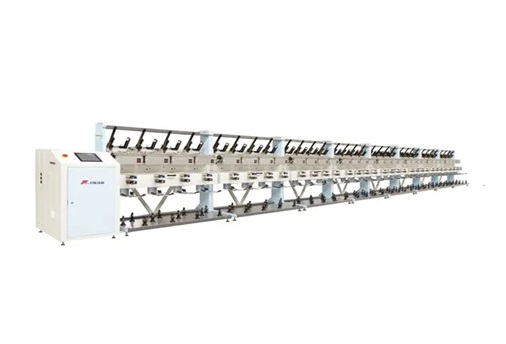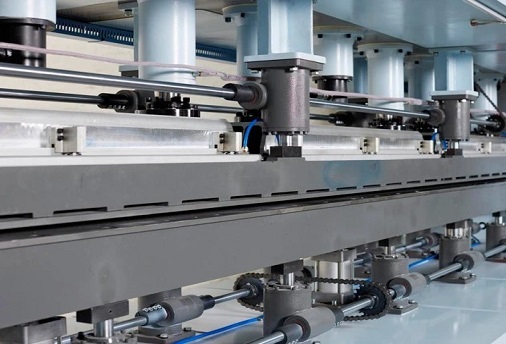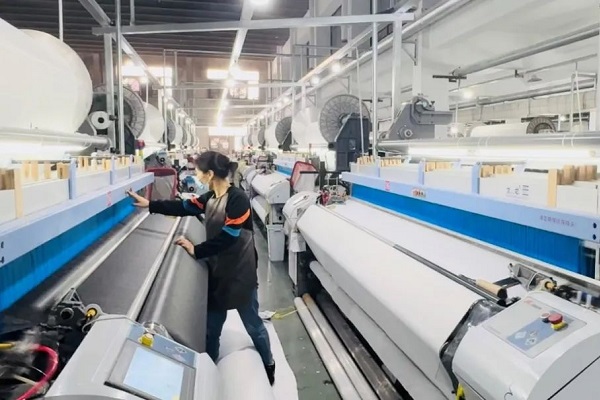En
A TFO (Two-for-One) machine is a device that, driven by a motor, uses friction and tension control to twist and stretch two or more yarns within a certain length range to create plied yarn. It is mainly used for twisting steel cord, rope strands with wire contact structures, as well as twisting and processing electric wires, cables, and fiber ropes.
The body of the TFO machine rotates one full turn, which can twist out two turns of the strand or rope. Its production process mainly includes three steps: primary twisting, secondary twisting, and winding. The primary twisting section is driven by the main motor rotating the flywheel, and the servo motor for twisting drives the secondary twisting mechanism. The winding section is driven by a motor that controls the winding wheel and the alignment motor; additionally, there is a cradle motor that controls the flipping of the cradle, and suction and exhaust motors to cool the inside of the machine. The operating speed of the entire device can be adjusted as needed, and the speeds of the individual motors need to maintain a certain proportion, i.e., operate synchronously.
The TFO machine has widespread applications in the cotton spinning, synthetic fiber, and cashmere textile industries and is an important equipment for producing high-quality fine yarn. As society demands more environmentally friendly, high-quality, and efficient production, the importance of the TFO machine in the textile industry is also increasing. In the future, TFO machines will gradually develop towards being more intelligent, faster, more automated, and networked to meet market demands and achieve sustainable development.
Adopts a new spindle structure
It can meet different process requirements for various yarns.
Single spindle data tracking technology
It enables functions such as automatic stop when the package is full.
Optimized yarn path structure
It effectively reduces yarn processing damage, meeting the requirements for processing high-quality yarns.
New electronic control system
It makes process switching convenient.
Meets the forming requirements after single or multiple strands
It meets some composite twisting requirements for yarns.
In summary, the RIFA TFO machine, for instance, two for one twister, is an efficient and highly automated specialized mechanical device with broad application prospects and development potential in the textile industry.


